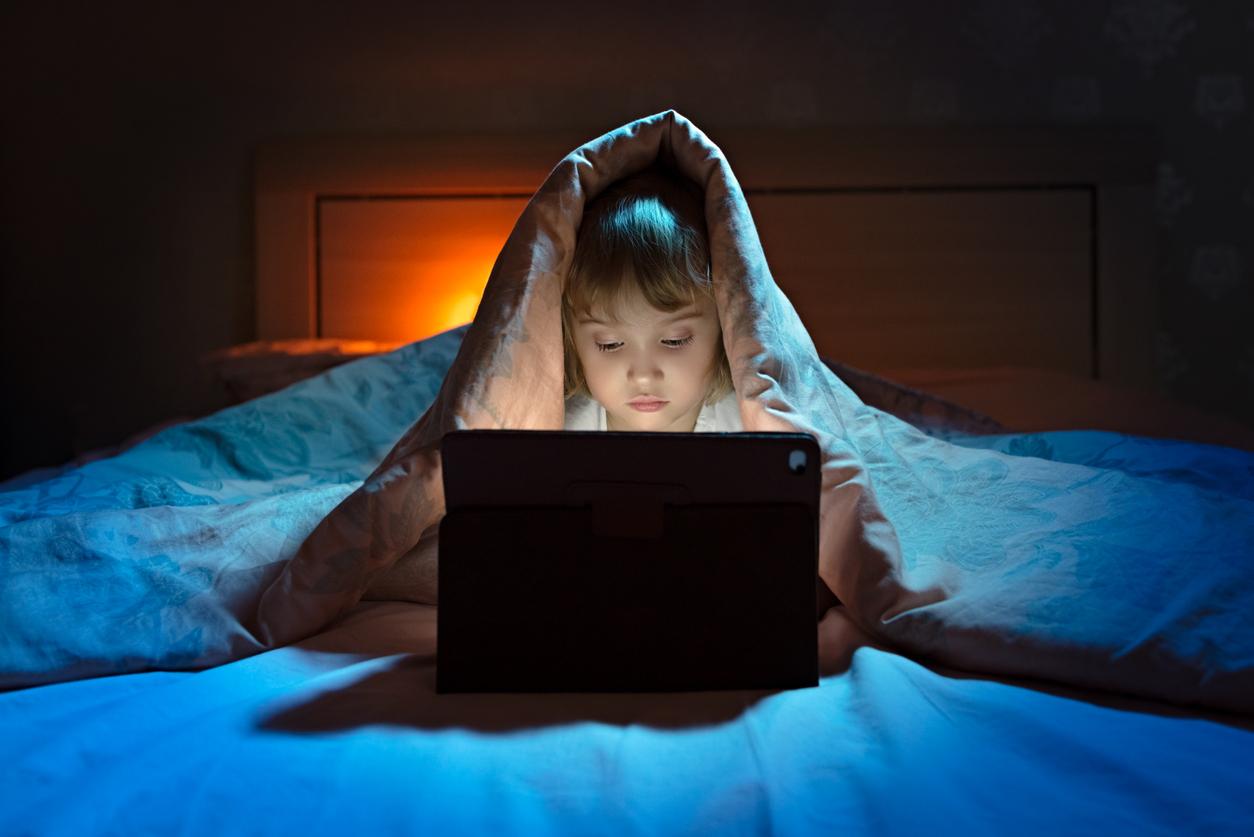The time children spend in front of screens must be drastically limited, according to Swedish authorities. It is for their health.

- According to Swedish authorities, screen time should be limited to one hour per day for children aged 2 to 5, one to two hours at most for those aged 6 to 12, and two to three hours for adolescents aged 13 to 18.
- As for children under 2 years old, they should simply not be exposed to screens at all, which are particularly harmful to brain and language development.
- With 13-16 year-olds spending an average of six and a half hours a day in front of a screen, outside of their schooling, this leaves “little time for group activities, physical activity and adequate sleep”, according to the authorities.
THE “keep at a distance”to the maximum. It is with this objective that the Public Health Agency of Sweden published, this Monday, September 2, new recommendations on the time that children should spend, or precisely not spend, in front of screens, whatever they may be.
According to the authorities, screen time should be limited to one hour per day for children aged 2 to 5, and one to two hours at most for those aged 6 to 12. Adolescents aged 13 to 18 should not spend more than two to three hours daily on a screen. As for toddlers under 2, they should simply not be exposed to screens at all, which are particularly harmful to brain and language development.
Six and a half hours of screen time per day for children aged 13 to 16
The agency also recommends that parents ban all screens before bedtime and keep tablets and smartphones out of children’s bedrooms overnight. The Swedish government even recently indicated that it was considering banning smartphones altogether in primary schools.
“For too long, smartphones and other screens have been allowed to enter every aspect of our children’s lives”says the Minister of Public Health, Jakob Forssmed, in front of the press. The figures speak for themselves: young people aged 13 to 16 spend an average of six and a half hours a day in front of a screen during their free time, outside of their schooling (which, by the way, increasingly uses them in an educational context…). It’s more or less the same thing in France.
As a result, this leaves “little time for group activities, physical activity and adequate sleep.” With bedtimes being delayed by screens, the minister is discussing a “sleep crisis” in the country, stating that more than half of Swedish high school students aged 15-16 were not getting enough sleep.
Excessive screen time linked to health and developmental problems
To support its claim, the public health agency cites a number of studies that have shown that excessive screen time can impair sleep, lead to depressive symptoms and impaired body perception. More recent research has found that young children who spend too much time in front of screens develop more “sensory processing disorders”or that they tend to talk and interact less with their parents.


















